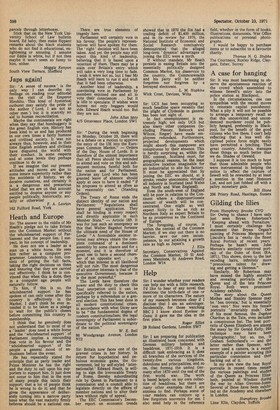Sir: "During the week beginning on Monday, October 25, there
will be a debate on a motion to approve the entry of the UK into the European Common Market." — Orders of the Day, House of Lords. It is therefore of the utmost importance that all Peers should be reminded to attend and vote on this and subsequent motions, fateful both for the nation and for Parliament. Likewise any Lord who has been granted leave of absence should apply at once to have it ended "if he proposes to attend as often as he reasonably can." (Standing Orders).
The Treaty of Rome ends the distinct identity of our nation and Parliament: "Regulations shall have general application. They shall be binding in every respect and directly applicable in each Member State." — Article 189. It was for just such an emergency as this that Walter Bagehot foresaw the ultimate need of the House of Lords: " A formidable sinister interest may alway.s obtain the complete command of a dominant assembly by some chance and for a moment, and it is therefore of great use to have a second cham
ber of an opposite sort . . in which that interest in all likelihood will not rule. The most dangerous of all sinister interests is that of the executive Government, because it is the most powerful."
The Lords have therefore the power and the duty to check this final usurpation until it can be specifically referred to the nation, perhaps by a referendum or a general election. This has been done in all modern constitutional crises, in accordance with what Dicey saw to be "the fundamental dogma of modern constitutionalism; the legal sovereignty of Parliament is subordinate to the political sovereignty of the nation."
W. E. Bell 86 Woodgrange Avenue, London N12


































 Previous page
Previous page